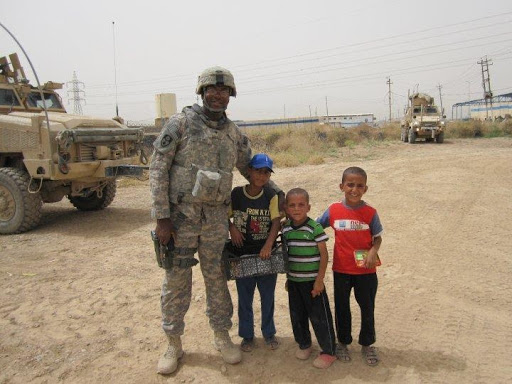To Iraq and Back: A Veteran’s Writing Journey
By Don, a Writing Coach
When I came back from Iraq in July 2010, I was eager to enter college. It wasn’t that I desired to learn all that I could but that I felt behind. Most of my high school classmates were starting their second year of college when the 747 that delivered me from Iraq to America landed in Gulfport, Mississippi. I wanted to get my college education started because part of me felt that, if I didn’t start soon, I would never go.
When I entered my first class in August 2010, Iraq was fresh on my mind. Deep within me was a burning sensation to hide my experiences in Iraq, partly because during those early war years, people would ask veterans the craziest questions. Although I chose not to discuss my veteran status, I did find a welcoming space to write about it.
During my first first-year composition class—at my undergraduate college, all students had to take two composition courses—my professor encouraged me to write as much or as little about my experiences in Iraq as I wanted in a personal essay. I remember that essay fondly. I wrote about my interactions with the Iraqi children I met on missions. I talked about how we played soccer and why I gave them muffins I took from the base’s dining facility. In the picture below, these little children were selling peanuts. Even in the face of a war, these little children lived their lives to the fullest.

Reflecting on these moments granted me a gateway to understanding my truth and my lived experience. Though it would take me several more years to talk openly about my time in Iraq with others, this opportunity to write about my experiences became a defining moment in my life as a college writer. I learned that I didn’t have to simply turn that part of me off now that I was in a new setting.
Transitioning from the Army to college was notoriously difficult no less. In part, I was used to a somewhat predetermined structure. I was given orders and steps to achieve the best solution. College writing, more often than not, felt more open-ended. I was given prompts and instructions, but what I produced was almost entirely left up to me. There was no sergeant checking my progress or a battle buddy insisting on showing me the ropes. So, the transition to college writing for me felt daunting to say the least.
But what was less daunting was my ability to dictate my lived experiences. To determine what I would share and how I would share it was revolutionary. Yet, as I began to practice college writing more and more, I found more commonalities between my old Army experience and my new college experience.

Like the Army, college writing became more navigable when I realized that all writing involves risks. The words I chose were left up to me. The anecdote I began my introduction with is my choice. The very nature of how and when I decided to conclude the draft is all mine. I would soon realize that I had been exposed to a structure in the Army that allowed me to navigate tough situations. Both college writing and the Army centered on the choices I made.
The biggest lesson I learned: I can be both an Army veteran and a college writer. I don’t have to separate my past experiences from my present life. My Army history is a part of me. So, when I began college all those years ago, I never really thought about the Army as having an effect on how I learned, but I was indeed wrong. All of the Army knowledge I picked up along the way, I now know, is so useful to my experience as both a student and a writer.
This blog showcases the perspectives of UNC Chapel Hill community members learning and writing online. If you want to talk to a Writing and Learning Center coach about implementing strategies described in the blog, make an appointment with a writing coach or an academic coach today. Have an idea for a blog post about how you are learning and writing remotely? Contact us here.

